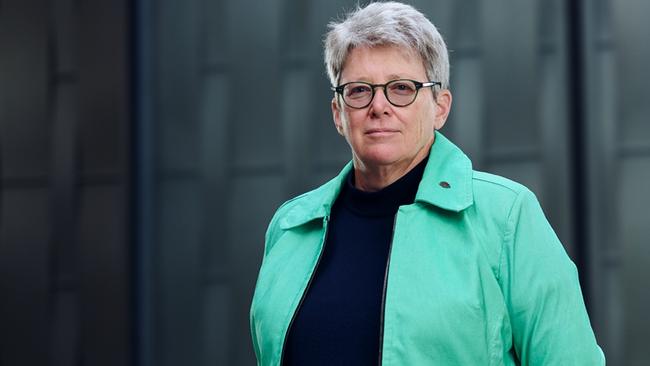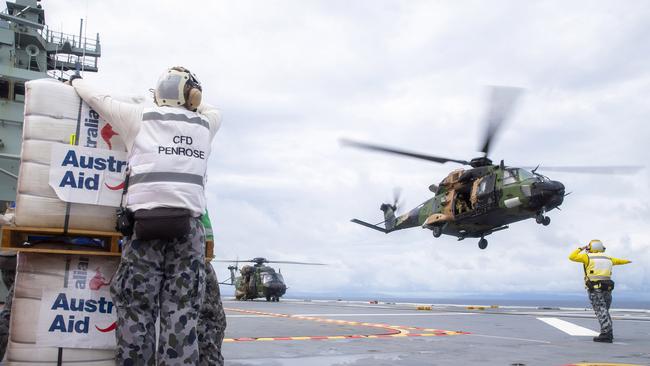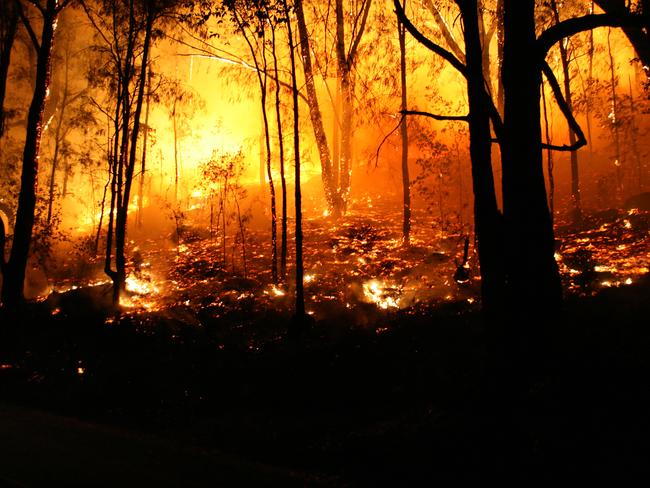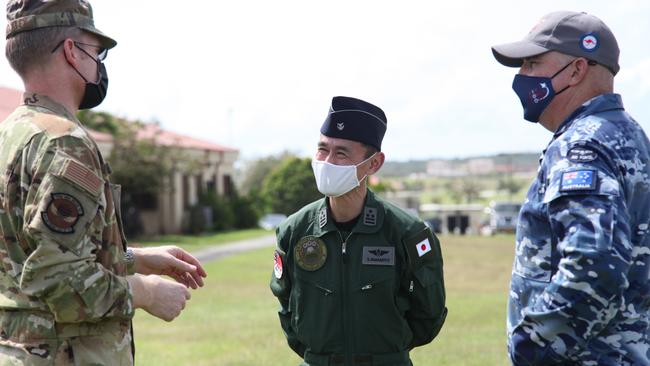Australia’s national security challenged by climate change
Australia’s immediate national security is under threat again with no plan to cope with evolving natural hazard patterns, an expert has warned.
National
Don't miss out on the headlines from National. Followed categories will be added to My News.
Climate change is the greatest threat to Australia’s immediate national security, with no integrated military-civil society plan to cope with evolving natural hazard patterns, the former chief of Defence Preparedness has conceded.
Cheryl Durrant, who spent 30 years in Defence analysing risk and threats to national defence systems, said the nation’s unwillingness to deal with climate change was already affecting Australia’s regional influence and security.
A Senate inquiry in 2018 into security and climate change concluded it was a significant risk as it ordered a comprehensive threat assessment that three years on has still not been done.
Ms Durrant said the government and military preferred to deal with uncertainty of a threat from the likes of China than certainty from climate change and its catastrophic effects.

“It’s incredibly lazy and I think you’d have to ask the government why we haven’t done what would seem a simple thing, get our national intelligence agencies and departments to get together and ask ‘what are the risks and what can we do about them’,” Ms Durrant who now works for the Climate Council said.
“We are a Lucky Country and escape through many things just on the advantages of geography but then we haven’t got the habit of ‘lets get on top of this and understand our risk and opportunities to put our strategy and money in the right place.”


Ms Durrant, who spent half her career as an Army intelligence officer, has authored a report for the Climate Council to be released on Tuesday on the risk of the climate on national security.
The report comes ahead of the AUSMIN meeting in Washington on Thursday for Defence Minister Peter Dutton and Foreign Minister Marise Payne where Australia’s climate commitment to regional security will be challenged by the US.
President Joe Biden earlier this year issued an executive order recognising the integrated nature of climate and security risk.
Ms Durrant said Australia needed to think differently.

“I think we are stuck in the mindset where conventional conflict has been the biggest risk and quite reasonably we’ve invested money to mitigate that risk but now that our key allies the Americans, the UN, NATO, UK, New Zealand, Canada even China identifying climate change as the biggest national security risk on the planet, our pattern of investment doesn’t match the risk anymore …”
She said like for COVID-19, the government needed a national assessment for the best pathway out of our climate predicament that best science is telling us is impacting. Part of that should be a transitioning away from fossil fuels and net zero emissions by 2035.
The United Nations’ Intergovernmental Panel on Climate Change (IPCC) last month warned unless drastic action was taken on carbon dioxide emissions, the planet will warm by 1.5 degrees within 10 years, creating more frequent and devastating natural disasters.

Former US Deputy Undersecretary of Defense (Environmental Security) now Secretary-general International Military Council on Climate & Security Sherri Goodman said it was not too late for Australia to create a climate secure future.
She called for a federal government commitment to more than half emissions this decade, in line with the new 2030 emissions reduction target from the US Government.
“Australia needs to mobilise a “whole of nation” approach and to work closely with its Asia Pacific allies, from small and climate vulnerable island nations, to the US,” she said.
Mr Dutton’s office could not be reached for comment.


